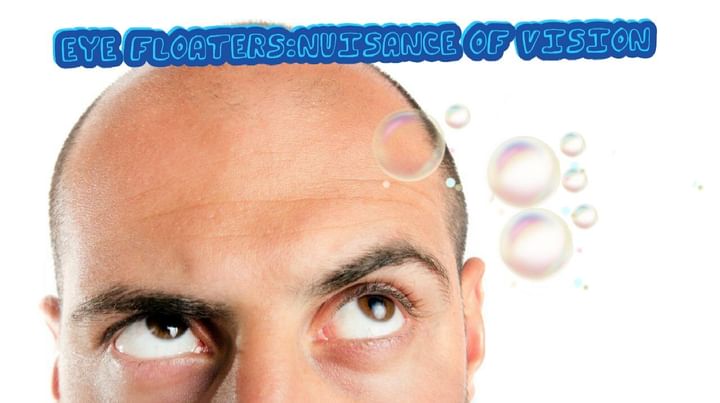Floaters: Nuisance or Medical Concern?
Eye floaters are tiny spots or "cobwebs" that drift aimlessly around in your field of vision.
Though harmless yet very annoying, these eye floaters are very common.
Eye has two compartments : Anterior and Posterior. Posterior compartment is mostly filled with a gel-like substance known as vitreous. Ninety-eight percent (98%) of vitreous is water and the major extracellular matrix (ECM) macromolecules are collagen type II and hyaluronic acid. With age, the protein fibres that make up the vitreous shrink down to little shreds that clump together which cast shadows on the retina when light enters the eye which is appreciated as floaters. When eye and the vitreous gel inside the eye moves, these clumps move thereby their shadows drift which gives the impression of floaters. Eye floaters are particularly pronounced if you gaze at a white or light-coloured background.
Are Eye Floaters A Medical Emergency?
A few floaters are not a cause for concern. However, when there is a shower of floaters especially if accompanied by flashes of light, get retina evaluation by retina specialist immediately. This could appear when the retina is becoming dislodged commonly known as retinal detachment. A recent study showed that sudden appearance of eye floaters and/or flashes of light were initial symptoms of a torn retina in 8.9% patients. In that case, consult retina specialist and get proper treatment on an emergency basis.
Other conditions associated with Eye Floaters:
- Posterior vitreous detachment
- Vitreous haemorrhage
- Inflammation in the posterior segment of eye
- YAG laser capsulotomy etc.
How To Get Rid Of Eye Floaters?
Majority of eye floaters are annoying but harmless. If avoided, these usually fade and become less bothersome. So, no treatment is required in a majority of cases. Treatment is usually advised for large persistent floaters.
Treatment options include:
- Surgery: Vitrectomy wherein some or all of the vitreous containing floaters is removed from the eye however the risks of a vitrectomy usually outweigh the benefits. Risks include surgically induced retinal detachment, eye infections etc. For these reasons, we do not recommend vitrectomy to treat eye floaters
- Laser Treatment: Laser vitreolysis is a safer alternative for eye floater treatment. A laser beam is focused on large floaters, which breaks them apart and/or frequently vaporizes them so they disappear or become much less bothersome.



+1.svg)
